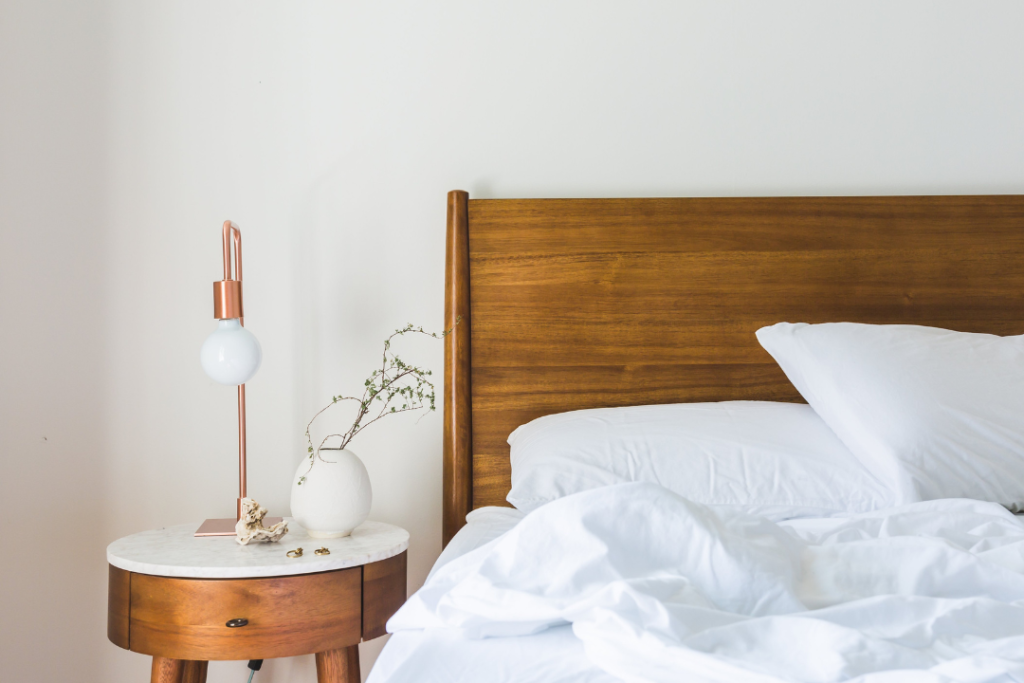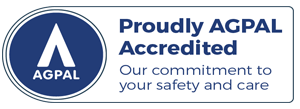
SURVIVING SLEEP DEPRIVATION: A NEW PARENT'S GUIDE
with Renee Dyson-Holland
Surviving Sleep Deprivation: A New Parent’s Guide
Hey there my Exhausted Superstars! We know new parents don’t exactly get to hit the snooze button. But there’s a big difference between sacrificing sleep and waving it goodbye completely. Read on to hear some game-changing facts and tips to reclaim those precious Z’s that I wish I knew all those years ago… Let’s dive in!
Sleep Deprivation Facts for New Parents
- Sleep Loss: When a baby is born, men lose an average of 13 minutes of sleep each night, while women lose over an hour. And guess what? Dr. Oscar says mums can lose up to 700 hours of sleep in the first year. Yikes!
- Duration: These sleep disruptions can linger until your oldest is 6 years old. It’s like having a tiny, adorable alarm clock.
- Mental Health Impact: Lack of sleep can turn anyone into a grumpy gremlin, make stress levels skyrocket, and amp up anxiety.
- Physical and Cognitive Effects: Less sleep means more accidents, brain fog, and feeling like a zombie… along with messing up your hormones and metabolism.
- Parenting Challenges: You might find yourself channelling your inner Hulk more often than you’d like, impacting on relationships and your inner parenting styles.
- Postpartum Depression: 1 in 5 women experience worse symptoms due to sleep deprivation. It’s a big deal.
- Breastfeeding: Breastfed babies wake up more often, so night duty feels endless… and it’s imperative we get the support we need.

Common Myths About Sleep for New Mothers
Before we get into the nitty-gritty, let’s bust some sleep myths wide open. Here’s what many new mammas think (and why it’s totally okay to rethink it)
Common Mothers Myths About Their Role in Sleep:
- Myth: Only mums should handle night wakings.
- Reality: TTTTag-team it! Sharing the load is key.
- Myth: Breastfeeding mums should do all night feeds.
- Reality: Partners can help with nappy changes or rocking the baby back to sleep, or even helping with bottles if that’s going to work.
- Myth: Prioritising your own sleep is selfish.
- Reality: Nope. It’s survival. LITERALLY! For now and your future self.
- Myth: Protecting your partner’s sleep is a must if they work.
- Reality: Everyone needs sleep to function well. EVERYONE! Let’s not forget being a mother is equivalent to 2.5 full-time jobs in and of itself AND breastfeeding equates to something like 1800 hrs of time in just 1 year!
- Myth: If sleep is a struggle, it’s the mother’s fault.
- Reality: Babies wake up. It’s not a reflection of your skills.
- Myth: Mums should handle ALL baby/care work.
- Reality: Parenting is a team sport. Staggeringly, women still do around 65% of the physical household work like chores and cooking for instance, which ideally, if shared more evenly would help a lot. Appreciating and holding each other in this partnership is crucial vs getting caught up in ‘who’s working the most/hardest’.
- Myth: Only mums can settle the baby back to sleep (I have useless man nipples)
- Reality: Anyone can help, including partners and family or even a paid service.
- Myth: Asking for help means failing.
- Reality: Asking for help is a superpower.
OLD vs. NEW CRITERIA FOR SUCCESS IN MOTHERHOOD
Old Criteria for “Doing it Right”:
- Being the primary parent waking with the baby.
- Sacrificing your own sleep.
- Protecting your partner’s sleep.
- Saying no to help and doing it on your own.
- Being rigid about ideals.
- Believing that a baby sleeping “well” means you’re winning at parenting.
- Expecting baby naps to follow a strict schedule.
New Criteria for Measuring Progress:
- Plan for your own sleep as well as your baby’s.
- Set realistic expectations about baby sleep, and inform yourself of what’s biological normal
- Adjust what you think you can accomplish solo.
- Recognise when you’re running on empty and ask for support (paid or otherwise – hello night nanny)
- Be flexible around feeding to get more consolidated sleep.
- Don’t measure your parenting skills by how your baby sleeps.
- Be kind and compassionate with yourself.

Individual Ways to Plan for Your Own Sleep
- Plan for Sleep Throughout the Day:
- Move Your Body: Get in some light exercise. Think pram walks or gentle yoga.
- Limit Caffeine Intake: Switch to decaf by afternoon at least or reduce (I’m sorry mammas). Your future sleepy self will thank you. I love any water-filtered, organic and mycotoxin free option.
- Limit Alcohol Consumption: It’s tempting, but it messes with your sleep.
- Consolidated sleep chunks: As many adult sleep cycles smooshed together (ideally before midnight) they call it the REVERSE SLEEP-IN and it’s a game changer – 8 o’clock is late o’clock as Dr Oscar will say.
- Nap When the Baby Naps:
- Resist the urge to clean or catch up on emails/doom scrolling on social media or Netflix and chilling. Micro Naps are golden! Or legs up the wall with a guided meditation.
- Create a Realistic Bedtime Routine:
- Turn Off Screens: Give your phone a bedtime too. Blue light blocking glasses can help (we stock them at The Remedy Room).
- Change into Pyjamas: It’s a signal to your brain that it’s time to relax. Dim the lights ideally emulate a camp fire vibe – Himalayan salt lamps are tops.
- Brush Your Teeth and Do Your Skin Routine: Simple self-care can be soothing.
- Use the Bathroom: Avoid midnight bathroom trips.
- Get into Bed: Consistency is key. Regular bedtimes if and where possible.
- Use White Noise or Relaxing Guided Imagery: Try deep breathing or a magnesium (glycine oral powder) foot soak or spray on feet to calm down.
Natural Sleep Helpers:
- Herbal Teas: Chamomile, Lime flowers, and passionflower tea can help you relax. Holy basil is another all-time fav of mine – Tulsi all day everyday!
- Magnesium Supplements: Magnesium (glycinate) can be a game-changer for sleep.
- Essential Oils: Lavender oil in a diffuser can create a calming environment.
- Foot Soaks: A warm foot soak with Epsom salts can relax your muscles and mind.
Additional Considerations:
- Baby’s Frequent Wake-Ups: If your baby wakes more often than seems normal, check with your doctor or a holistic sleep consultant, or even our biological dentists and Osteo. Issues like reflux or tongue ties can mess with sleep.
- Possible Issues: Address underlying problems that interfere with sleep, like gas or feeding difficulties.
Key Takeaway:
- Remember, sleep is not a luxury—it’s a necessity. By prioritising your own rest, you’ll be a more patient and resilient parent. Share the nighttime duties, lean on your support network, and don’t hesitate to embrace these naturopathic tips to get the rest you deserve. After all, a well-rested parent means a happier family!
- Feel free to share this guide with fellow sleep-deprived parents. Together, we can tackle sleep deprivation and get the rest we deserve! And if you’d like some Naturopathic support and prescriptions, look no further, I am here to help! You can book an appointment with me here.
- A BIG part of the journey is taking little pieces that resonate with you and your little family – Some helpful resources that I loved that may offer some nuggets: Pinky McKay ‘Sleeping Like a Baby’, Sarah Ockwell-Smith “Gentle, No-Tears, Sleep Solutions’, The Beyond Sleep Training Project, Possums Sleep Program, Happy as a Mother Podcast and Sleep plan & Dr Sophie Brock – The Good Enough Mother Podcast, just to name a few.

To learn more about Renee and her services, click here


